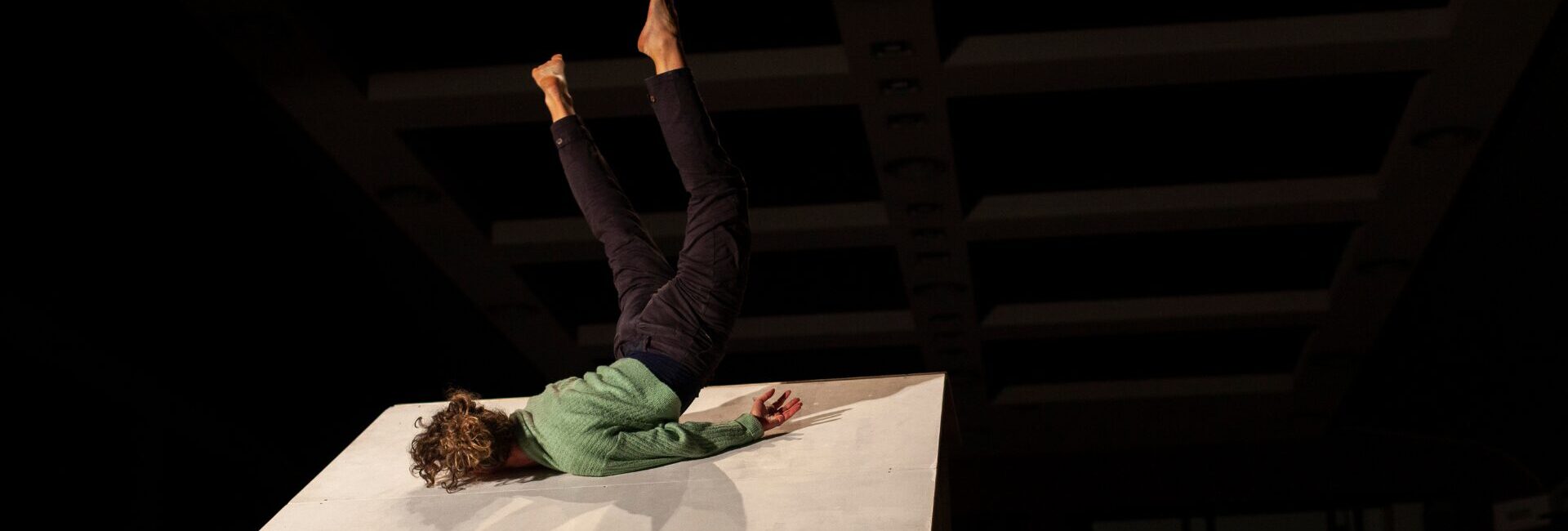The audience observes with their noses in the air the relationship created between a wooden ramp and a female body.
Catarzi dances down a 5-metre-long slope inhabiting a width of about one and a half metres, and those who witness this existentialist abstraction feel that they are taking part in an extremely intimate yet universal moment: the fatigue of the ascent, the unexpectedness of the descent, the invention of clear and defined gestures, the surprise of the leaps. A score that becomes poetry and leads us to ask ourselves – with Ermanno Cavazzoni – whether that sloping plane might not pose as a perfect metaphor for life.
The slope becomes ascent and descent, it allows us to perceive the satisfaction of having reached the top, and at the same time confronts us with fear, but also with the need to fall, albeit gently, sliding, but without holds: ‘And this is the other intimate dimension that runs through the entire performance and that speaks to us of fragility and strength, of change and resistance’.
